Thinking about trying a protein powder as a weight-loss tool or to help you build muscle? You may wonder which is better: pea protein or whey protein. This post will help you decide which one to use to meet your personal goals.
Protein powders are not just a trend or current hype. They’ve got a lot to offer in the way of nutrients and benefits.
But that doesn’t mean I advocate getting all of your protein sources from a powder. It’s really best to choose high protein snacks and whole food sources like chicken and eggs.
It’s perfectly fine to supplement, though, especially if you haven’t been eating as well as you should. I personally use protein powder on a daily basis for hitting my protein numbers in my macros.
Protein powder is great when added to a delicious shake or fruit smoothie if you are rushing out the door and need a grab and go meal. Protein powder is also ideal to top up your nutrition if you think your protein intake is inadequate.
I'm such a fan of protein powder that Dustin and I created cleanish Brand Protein Powder, in 3 flavors too! Imagine Chocolate + Sea Salt, Vanilla Bean and Caramel Latte flavors boosting the taste of your shakes. Fabulous!
I’ve got yummy recipes for sneaking extra protein into your day using powder, such as tasty cookies and even pancakes. Talk about boosting your intake of high-quality protein in a delicious way.
And, if you want tons of info on what protein powders can do for you, take a look at my post The 4 Best Protein Powders and How to Choose a Good One. I give you the ins and outs of protein powders, including info on the 4 protein powders I use the most.
But for right now, let’s take a look at the differences between pea protein powder and whey protein powder to determine which is better. But – spoiler alert – when it comes to pea protein vs whey protein, they both have their good points!
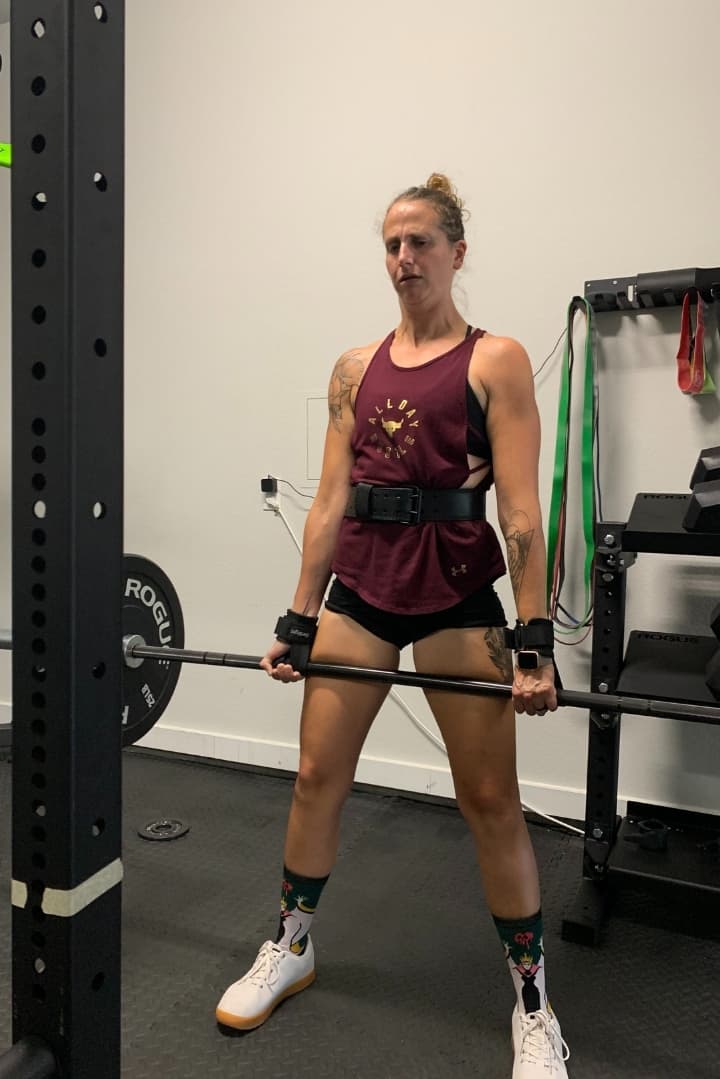
CAN YOU BUILD MUSCLE WITH PEA PROTEIN?
Yes, you can build muscle with pea protein. If you are vegan or vegetarian and cannot use whey powder, have no fear! We often think for muscle building we need animal-based proteins. But a 12-week study showed that weight-lifting men who took in 50 grams of pea protein per day built comparable muscle to men taking whey.
Remember though, you have to add exercise along with taking extra protein. Just eating protein alone without working out does not do the trick when it comes to muscle growth.
WHICH IS BETTER FOR WEIGHT LOSS: WHEY OR PEA PROTEIN?
Both whey and pea protein powders can help you lose weight, and I’ll tell you why.
Whey and pea protein both work to help you feel full. When you are not hungry and feeling satisfied (because you ate healthy food like a protein smoothie, rather than junk food), you stay away from grazing and eating when you are not really hungry.
When you eat more protein, you also boost your metabolism, which helps you burn calories. Protein also aids in holding on to muscle mass, burning fat instead when you are trying to lose weight. But again, you’ve got to combine the weight loss efforts with exercise to do so.
However, a 2008 study showed that participants who consumed whey protein lost not more weight, but more body fat than those who did not have the whey. So, as a fat-loss product, whey is worth trying!
IS PEA PROTEIN POWDER A COMPLETE PROTEIN?
Pea protein powder is considered a complete protein, yes, although it depends on who you talk to! The National Institutes of Health defines it as a complete protein. It contains all of the 9 essential amino acids needed in the diet, including valine, isoleucine and leucine.
However, it is low in methionine+cysteine (complete proteins have 25mg/g, while pea protein has 11mg/g). For this reason, pea protein is also often called incomplete. But if you eat other foods high in this amino acid, such as eggs, chicken, and oats, you’ll more than make up for the deficiency.
One of the great things going for pea protein is arginine. Pea protein contains high levels of the amino acid arginine, which is good for heart health.
Pea protein is also known for its digestibility and those with allergies or dietary intolerances (such as cow's milk and other dairy sources or gluten) will find plant-based proteins the way to go. Have lactose intolerance? Pea protein is the answer there, too.
DO YOU NEED PROTEIN POWDER?
If you eat a balanced diet and pay attention to your macros, you probably don’t need to supplement with protein powder, but it can be extremely helpful to do so.
But if you are on an intermittent fasting regimen like me, it’s good to know that you can be sure your protein intake is what it should be. Adding a protein smoothie to your eating window is an excellent way to boost your nutrition, for instance.
A person following a vegan lifestyle may want a boost of protein now and then and find that consuming protein powder assures they are eating well. Vegans and vegetarians, to ease your concerns about protein, I’ve written The Ultimate Guide to the Best Vegan Protein Substitutes, too!
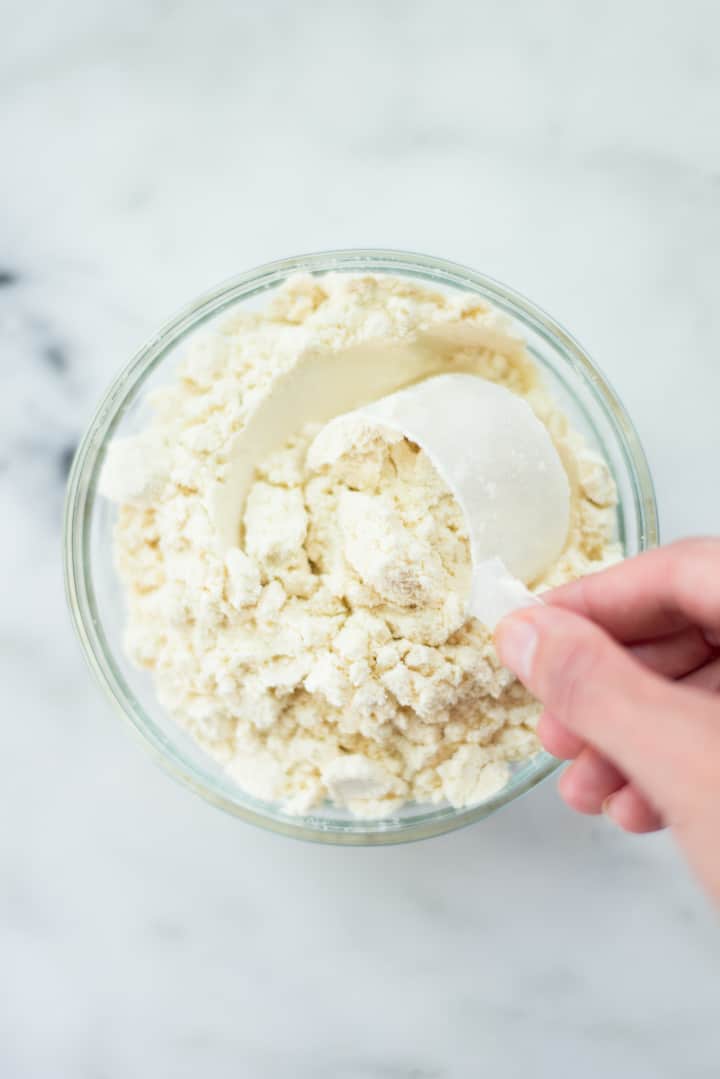
PEA PROTEIN VS WHEY PROTEIN COMPARISON
Let’s do a comparison, to give you an idea of the differences between the two.
How they are made
Pea protein is one of the most popular plant-based protein powders. It's extracted from yellow split peas. The process includes the removal of the pea shell and then the milling of the pea into pea flour.
To make whey protein, milk undergoes processing with enzymes that separate the whey from casein. Then, the whey liquid is dried, leaving a powder.
Nutritional comparison
The nutritional values of Pea Protein will vary from brand to brand. I like the Naked Protein Powder products, so let’s take a look at them.
| Pea protein 2 scoops (4.3 Tbs.) | Whey protein 2 scoops (6.4 Tbs.) |
| Calories 120 | Calories 120 |
| Fat .05 grams | Fat 2 grams |
| Cholesterol 0 | Cholesterol 50 mg |
| Sodium 110 mg | Sodium 45 mg |
| Carbs 2 grams | Carbs 3 grams |
| Sugar 2 gram | Sugar 2 grams |
| Protein 27 grams | Protein 25 grams |
PROS AND CONS
PEA PROTEIN
Pros
- Suits all diets because it is gluten-free, lactose-free, and vegan
- Pea-protein is Earth-friendly and contains no animal ingredients
- Contains amino acids for energy and muscle recovery
- Low in fat and any fat found is unsaturated which is good for the heart
- Pea protein is anti-inflammatory and antioxidant
- Pea protein is highly digestible
- The fiber in protein is great for the digestive system
- No bloating or gas
Cons
- Pea protein, being plant-based, allows for less iron absorption than an animal-based product
- Pea protein can be high in sodium
- Pea protein is low in methionine+cysteine, which gives it an incomplete amino acid profile in the eyes of many
WHEY PROTEIN
Pros
- Many whey proteins have added Branch Chain Amino Acids which make up a lot of our muscle tissue, and that’s why it’s touted as such a muscle builder
- The processing of whey protein breaks it down into individual amino acids which are then used to repair muscle
- Whey protein is good as a pre-workout energy booster
- Contains potassium and calcium
- Contains healthy saturated fats
- Lower in sodium than pea protein and can contain more grams of protein per serving than pea protein
- Iron absorption is higher with whey protein than it is with pea protein
- Again, whey has a high methionine and leucine content and is considered an excellent choice for consuming BCAAs or branch-chain amino acids
Cons
- Whey protein is not suitable for those who follow a vegan diet or are lactose intolerant
- Some people experience gas and bloating with whey powder
- Although still digestible, whey does not digest as easily as pea protein
The takeaway on pea protein vs whey protein
With so much talk these days about protein supplements, it can get confusing. That's why I decided to do this post and point out the good reasons for adding pea and whey protein to your daily regimen. Here's a wrap-up on these easy to use sources of protein.
Pea protein does not have gluten or lactose and therefore, is easy to digest. Although pea protein does not promote iron absorption as well as whey, you can aid in iron absorption by consuming your foods along with citrus. You can also boost your Vitamin C intake in general by eating foods like oranges, strawberries, bell peppers, broccoli, and Brussels sprouts.
Whey protein contains both whey and casein, which means it contains lactose. It may cause problems for those who are lactose intolerant. If you are allergic to milk, this is not an option either. However, there are some whey proteins out there that have been manufactured with a lot less lactose through the processing method. As far as carbohydrates go, whey protein concentrate has more carbs than whey protein isolate and hydrosolate.
Both pea and whey protein can contain additives (like sugar, thickeners, and artificial flavors), but can also have good things, like digestive enzymes, vitamins, and minerals.
Both whey and pea protein have the same impact on muscle thickness and growth when combined with exercise. They can both help improve body composition when paired with exercise like resistance training.
I think that both types of protein have a lot going for them. They are ideal for adding in a little extra nutrition when you feel that your protein is lacking. They are excellent for boosting your energy and helping to fill you up (in a healthy way!), keeping you from reaching for unhealthy snacks.
When you have a craving for something satisfying and tasty, consider protein shakes, supplemented with your chosen type of protein powder as an excellent choice!
This post contains affiliate links to products I use regularly and highly recommend.

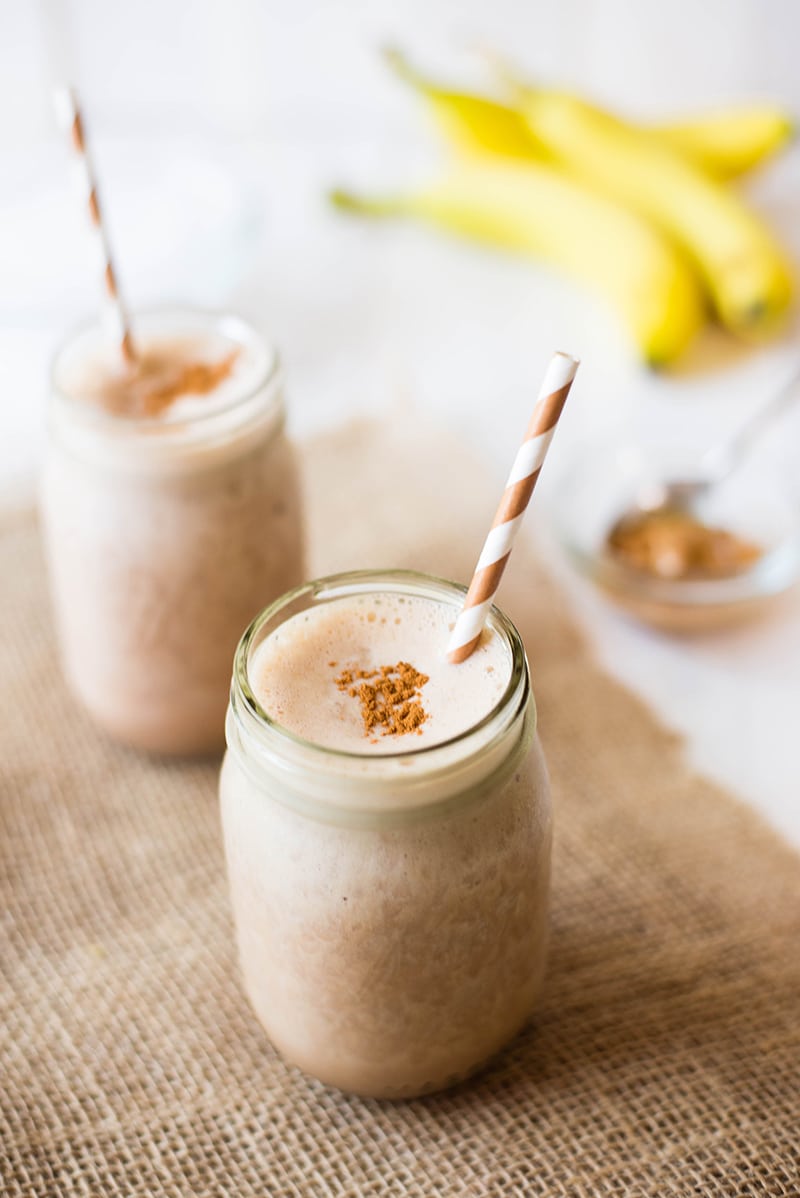
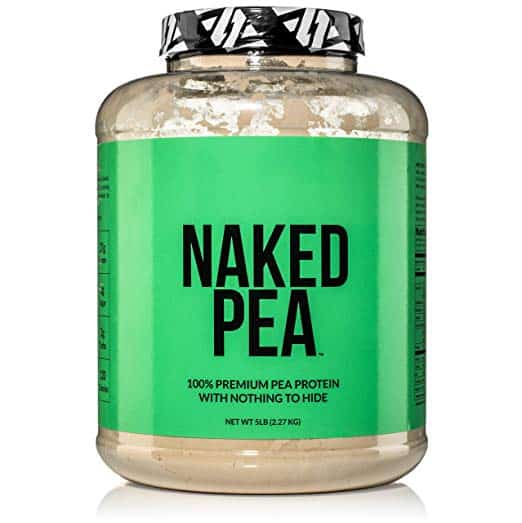
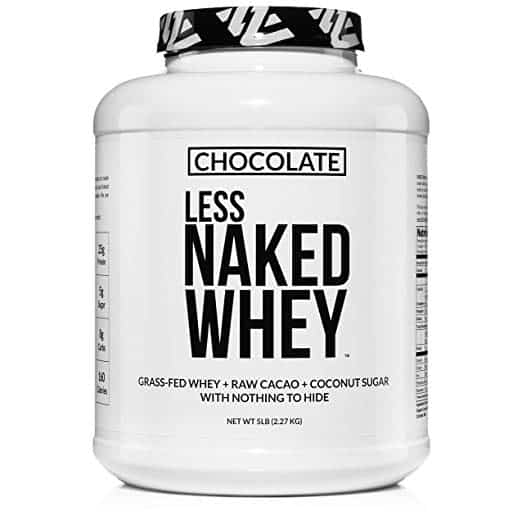
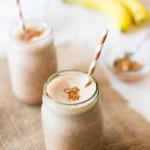
Charlynn Hawreschuk
You indicate in this article that “pea protein is “allergy-free” ! THIS IS A FALSE STATEMENT AND CAN CAUSE SOMEONE GRAVE DANGER!! Please retract this statement!! I have an aphalecvtic allergy to PEAS, CHICKPEAS AND LENTILS! If I ingest them I could die! I’m sure there are many others like myself out there and can be gravely hurt by your information!!
Jen Moderator
Hi Charlynn - Thank you for bringing this to our attention. We don't want to mislead anyone and certainly don't want to put someone in danger! Edited this statement per your suggestion. -Jen
Staci
Your smoothie recipes call for vanilla-flavored protein powder. What if I need to use pea protein? How do I get the vanilla flavor? If by using vanilla extract, how much?